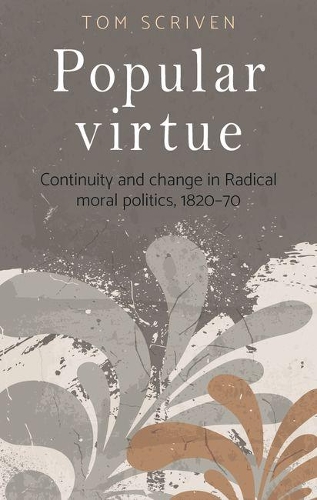
Popular Virtue: Continuity and Change in Radical Moral Politics, 182070
(Hardback)
Publishing Details
Popular Virtue: Continuity and Change in Radical Moral Politics, 182070
By (Author) Tom Scriven
Manchester University Press
Manchester University Press
2nd June 2017
United Kingdom
Classifications
Physical Properties
Hardback
240
Width 156mm, Height 234mm
Description
Popular virtue is the first in-depth study of the changing nature of moral politics within working-class Radicalism between 1820 and 1870. Through study of the lives, activism and intellectual influences of a number of key leaders of working-class Radicalism, this book highlights how Radicalism's attitudes to morality and everyday life shifted from a festive and libertarian culture that advocated sexual liberty and gender equality in the 1820s-30s to a more austere and ascetic politics that emphasized moral improvement, temperance and frugality after the 1840s. Despite the fracturing of this culture with the decline of Chartism in the 1850s, Popular virtue highlights how the moral politics of the 1840s possessed important legacies in not only the politics of Popular Liberalism and the Reform League but also in heterodox medicine and self-help. -- .
Reviews
Tom Scriven has written an important, rewarding, and wide-ranging book...
Matthew Roberts, Sheffield Hallam University, Labour History Review, vol 84 issue 1
'All in all, Scrivens book sheds light on the ways in which Chartists educated themselves and shared their knowledge with their working class audiences and readerships in order to help them reform their habits and gain the respectability that would earn them the Charter. [...] Popular Virtue wonderfully shows how the Chartists strived to promote individual improvement as a collective, rather than individualistic, way of making Victorian industrial society more liveable for the labouring poor as a whole.'
Miranda
Author Bio
Tom Scriven is Hallsworth Research Fellow at the University of Manchester
